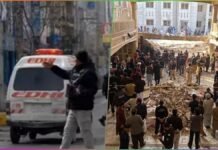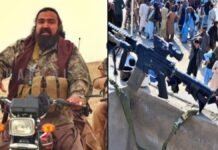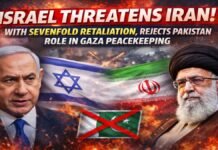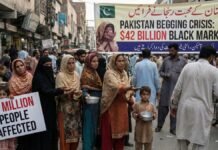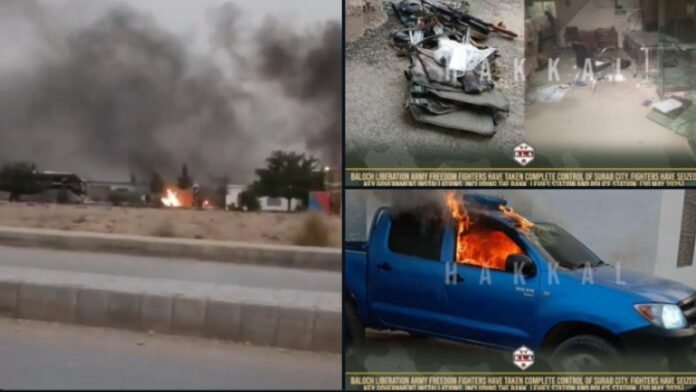
Key Points
- Armed Baloch rebels claim to have captured the strategic city of Surab in Balochistan.
- BLA fighters seized the Levies police station, a local bank, and several government buildings.
- Pakistani police and security forces reportedly fled without offering resistance.
- Surab’s capture threatens a vital supply route between Quetta and Karachi.
- The Baloch Liberation Army’s Operation “Heroof” marks a shift from guerrilla tactics to open occupation.
- Islamabad faces a serious internal challenge as Baloch fighters expand their reach from mountains to cities.
Balochistan, Pakistan: The security situation in Pakistan’s restive Balochistan province has dramatically worsened, as armed Baloch rebels from the Baloch Liberation Army (BLA) have claimed full control over the city of Surab. This unprecedented move signals a dangerous escalation in the decades-old Baloch insurgency and exposes the fragile grip of the Pakistani government over the region.
How Surab Fell: A City Taken Without a Fight
According to local sources, heavily armed BLA fighters stormed Surab on Friday, swiftly taking over the Levies police station, a local bank, and several key government buildings. In a stunning turn of events, police and security personnel reportedly abandoned their posts without firing a single shot or mounting any resistance. The city’s takeover was so swift and complete that the Pakistani authorities could do little more than watch from a distance.
BLA spokesperson Ziand Baloch confirmed the operation, stating that further details would be released soon. Patrolling and search operations by the rebels are reportedly underway on the Quetta-Karachi and Surab-Gidder highways, further consolidating their control.
Why Surab Matters: The Strategic Heart of Balochistan
Surab sits on National Highway N-65, a critical artery connecting Quetta the provincial capital with Karachi, Pakistan’s largest city. This highway is not only vital for civilian travel but is also a crucial logistics and administrative supply line for the government and military. The loss of Surab means a significant breach in Pakistan’s control over the main route between Karachi and Quetta, potentially disrupting the movement of troops, supplies, and commerce.
A New Face of the Baloch Rebellion
The Baloch Liberation Army, long dismissed by Islamabad as a “small terrorist group,” has now demonstrated its ability to capture and hold urban territory. The occupation of Surab is part of the BLA’s ongoing Operation “Heroof,” under which the group claims to have carried out 71 attacks in recent months. This marks a shift from traditional guerrilla tactics to a bold strategy of direct occupation and open defiance.
Islamabad on Edge: Internal Threat Overshadows External Rhetoric
While the Pakistani military and intelligence agencies have been focused on external threats and issuing warnings to neighboring India, the internal crisis in Balochistan has reached a boiling point. The fall of Surab is not just a symbolic victory for the Baloch rebels—it is a direct challenge to Islamabad’s authority, demonstrating that the insurgency is no longer confined to remote mountains but is now making inroads into cities.
What’s Next? The Future of Balochistan’s Rebellion
With the capture of Surab, questions are being raised about the stability of other key cities in Balochistan such as Mastung, Mangochar, Zhob, and even the strategic port city of Gwadar. The Baloch insurgency, once underestimated, has now become a ground reality that Islamabad can no longer ignore.
The occupation of Surab by the BLA is a watershed moment in the Balochistan conflict, signaling a new phase of the rebellion. As the Pakistani government scrambles to respond, the world watches to see whether Islamabad can restore control or if the Baloch movement will continue to redraw the map of Pakistan from within.



































